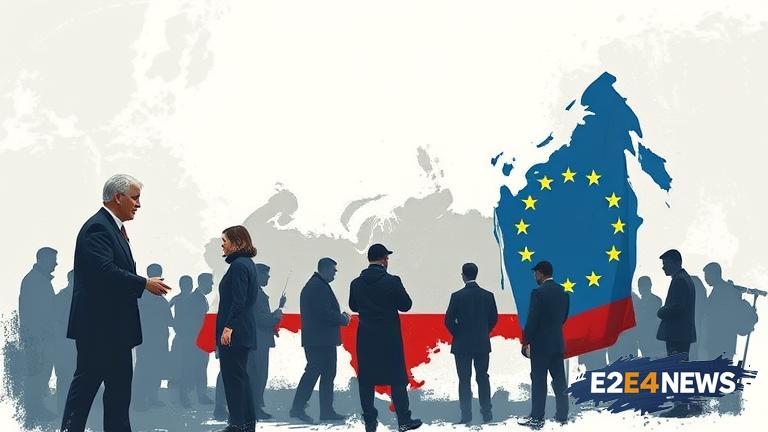Russia’s decision to quit the European Convention for the Prevention of Torture has sent shockwaves across the international community, with many expressing concerns over the country’s commitment to human rights. The convention, which was established in 1987, aims to prevent torture and inhuman or degrading treatment or punishment in member states. Russia’s withdrawal from the convention is seen as a significant setback for human rights in the country. The move is also expected to have far-reaching implications for the treatment of detainees in Russia, with many fearing that it will lead to an increase in human rights abuses. The European Convention for the Prevention of Torture has played a crucial role in promoting human rights and preventing torture in Europe. The convention has also provided a framework for member states to prevent and investigate allegations of torture. Russia’s decision to withdraw from the convention is seen as a rejection of these principles. The country’s human rights record has been a subject of concern for many years, with reports of torture, arbitrary detention, and other human rights abuses. The withdrawal from the convention is likely to exacerbate these concerns. The international community has condemned Russia’s decision, with many calling on the country to reconsider its position. The United Nations has also expressed concerns over Russia’s decision, stating that it will have serious implications for human rights in the country. The European Union has also condemned Russia’s decision, stating that it is a serious setback for human rights and the rule of law. Russia’s decision to withdraw from the convention is also seen as a sign of the country’s increasing isolation from the international community. The country has been subject to international sanctions over its actions in Ukraine, and its human rights record has been a subject of concern for many years. The withdrawal from the convention is likely to lead to further isolation and criticism from the international community. Despite the concerns, Russia has stated that it will continue to uphold human rights standards, although it is unclear how this will be achieved without the framework of the convention. The country’s decision to withdraw from the convention is also seen as a sign of its increasing authoritarianism, with many fearing that it will lead to a crackdown on dissent and opposition. The international community is calling on Russia to reconsider its decision and to uphold its commitments to human rights. The situation is being closely monitored by human rights organizations and the international community, with many fearing that it will have serious implications for human rights in Russia. The Russian government has stated that it will continue to cooperate with international organizations, although it is unclear how this will be achieved without the framework of the convention. The country’s decision to withdraw from the convention is a significant setback for human rights and the rule of law, and it is likely to have far-reaching implications for the treatment of detainees in Russia. The international community is urging Russia to reconsider its decision and to uphold its commitments to human rights. The situation is a cause for concern, and it is likely to be closely monitored by human rights organizations and the international community in the coming months. Russia’s decision to withdraw from the convention is a significant development, and it is likely to have serious implications for human rights in the country. The country’s human rights record has been a subject of concern for many years, and the withdrawal from the convention is likely to exacerbate these concerns. The international community is calling on Russia to reconsider its decision and to uphold its commitments to human rights.
